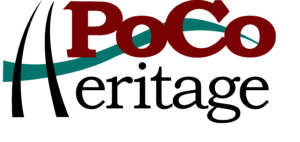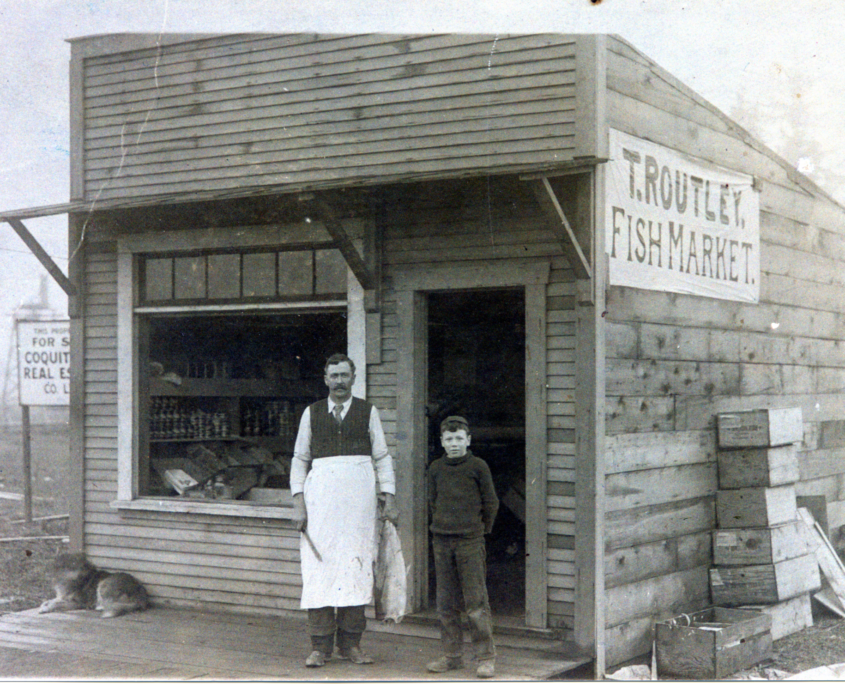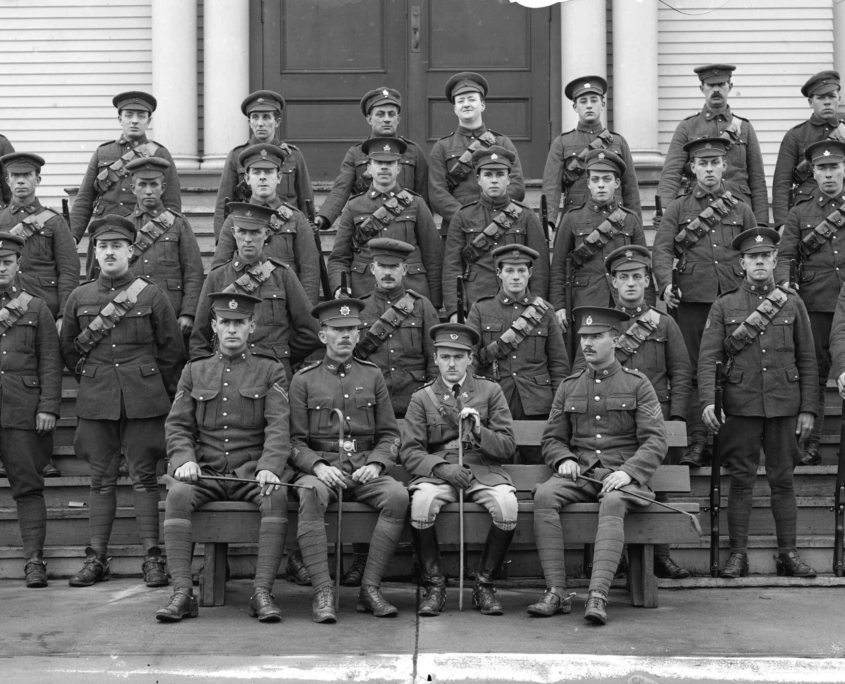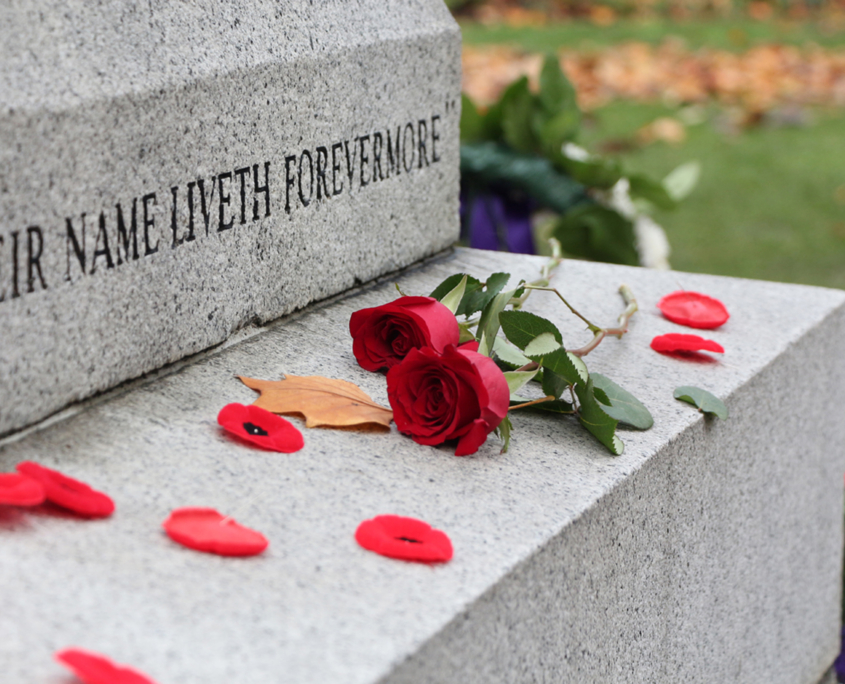On Their King’s Command
By Port Coquitlam Resident, Steve Smith
In a new railway town, where two tracks did split
On the western frontier along the Fraser and Pitt
A monger of fish, in a little wood store
A dog looking for scraps and a son at the door
For a city just born, three movies a week
As we laughed over Chaplin the world became bleak
The posters went up, and recruits made their pledge
With hopes to return from a world on the edge
From Westminster Junction they boarded the train
Steam east and get ready for a fight not in vain
In Europe they learned the realities of war
As friends fell beside them through guns mighty roar
Canucks we laid iron across our great land
And then we laid more on our king’s command
And two men named Routley, proud father and son
They laid down the track, one mile after one
Young Harold from PoCo, to fight he was keen
Got held up in England till he was eighteen
For king and for country, through trenches and toil
The battle raged on, as men died over soil
The tide, it was turning by early eighteen
As the front lines pushed forward through field and ravine
The Armistice signed and no shots are heard
For those that survived it all seemed absurd
They call it a victory and counted the cost
As we showed our respects to the millions we lost
And as for our heroes, they both would return
A medal, near blindness, is what Thomas would earn
And Harold, still young, had much left to give
He helped make our city a great place to live
And then there are those we can only remember
We honour their service each year in November
From Westminster Junction they boarded the train
Then landed in Europe where so many remain
With work left unfinished they departed our land
And fought for our freedom, by their king’s command
Chinese, Japanese, and Aboriginal Veterans
PoCo Heritage Museum and Archives would also like to specifically acknowledge the contribution of Chinese, Japanese, and Aboriginal veterans. The contributions of these communities to Canada’s war efforts and the hardships they have suffered have long been overlooked. We strongly encourage you to take the time to read through this tribute to aboriginal veterans.



